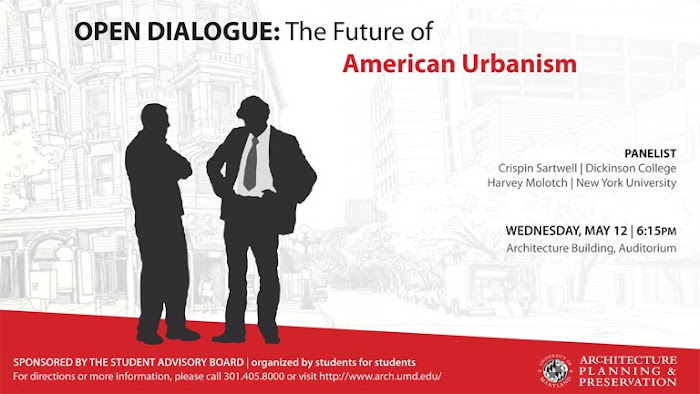Here is the list of official questions for the panelists, which they will come prepared to answer. What do you think? Also, feel free to contribute other questions for the panelists in the comments section.
1. Both of you explore the relationship between public policy and political ideology and the built environment. Can you each describe what your ideal political condition would be and how might that situation impact urban planning and design? How does this differ from where you feel the U.S. is moving in terms of its architecture and urban design?
2. “Growth” and “Change” are hot potatoes in the discussion of urban development and planning – endorsed by some, dreaded by many. What is your viewpoint on these terms and who are the opposing actors? Do you think people’s perceptions and attitudes have changed during the last decades?
3. Both of you speak of the power of the state and government to impact the built environment. How do you think September 11th has impacted the American built environment? What are the implications for urban settings in war times generally?
4. Richard Sennett (1971) argues that in urban settings, zoning and other land use controls used by the local government prevent people who are different from one another confronting and working through that difference and thus reaching understanding and compromise. Do you agree with this notion? Why or why not?
5. Almost two hundred years ago, Alexis de Tocqueville stated in Democracy in America that individualism saps the virtues of public life. Do you think this is still true? How does individualism compared to collectivism affect the built environment and its use? Can good cities be built on individualism and the freedoms that come with it?
Friday, April 30, 2010
Subscribe to:
Post Comments (Atom)

when do the readings go up?
ReplyDeleteThese questions...do not seem particularly tailored to the panelists.
ReplyDelete